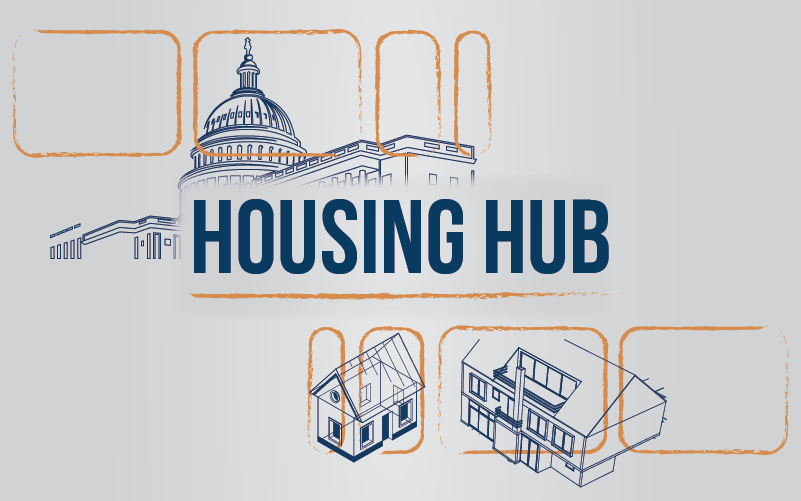
Renovation Financing: Key Changes to FHA’s 203(k) Program
A blog empowering Hispanic homeownership through advocacy and policy.
By Elizabeth Nimmons
August 29, 2024
Last month, the U.S. Department of Housing and Urban Development (HUD) announced long-awaited updates to the Federal Housing Administration’s (FHA) 203(k) Rehabilitation Mortgage Insurance Program. As an industry stakeholder, NAHREP has advocated for updates to this program, including raising repair limits and making the program more accessible in today’s housing market. Now that these updates have been released, we are excited to dive into the program details, including the key changes and what you need to know if you want to get more involved in expanding access to the program.
What Is FHA’s 203(k) Program
The 203(k) program is a rehabilitation product that offers homebuyers the opportunity to finance both the purchase (or refinance) of a home and the costs of renovations through a single FHA mortgage. A portion of the loan proceeds are used to pay for the home or, in the case of refinance, to pay off the existing mortgage, and the remaining funds are placed in an escrow account to be released when renovations are complete. This program is particularly valuable for those buyers who are interested in purchasing fixer-uppers or looking to renovate their existing homes, but who may not have the cash on hand to do so.
The program offers two options: the Limited 203(k), which is ideal for minor remodeling and non-structural repairs, and the Standard 203(k), which is best for major remodels or structural additions. The Limited 203(k) Mortgage permits homebuyers and homeowners to finance up to $75,000 into their mortgage for home rehabilitation. Great for smaller home improvements or preparing a home for sale, the Limited 203(k) allows homeowners to quickly access cash for repairs. The Standard 203(k) is best for major rehabilitations of homes, as it allows for financing repairs above $75,000.
Rehabilitation Funding Can Help Fill the Supply Gap
Expanding access to rehabilitation funding is one tool that can help fill the housing supply gap. As housing gotten increasingly less affordable, many lower cost homes that need repairs are not going to owner-occupants. Often, homes in need of rehabilitation go to investors, because owner-occupants simply don’t have the funds to fix them up. Additionally, U.S. housing stock is generally aging. Research from the Urban Institute demonstrates the need for effective rehab financing programs, finding that if we could slow the obsolescence of aging homes by 0.1 percent per year, we would “save” 107,000 housing units each year. The rehabilitation of existing housing will be a critical step to addressing the current housing supply crisis.
Key Updates to the 203k Program
In the past, 203(k) has been criticized for being impractical or difficult to use. But recent updates aim to solve many of the problems that made the program tricky. Brian Faux, Director of the Office of Single-Family Program Development at HUD, said that the changes represent a “holistic modernization” of the program, which the organization hopes will make the loans more accessible for both borrowers and lenders.
Here are some of the most notable updates:
- Increase of the Limited 203(k) total rehab cost maximum from $35,000 to $75,000,
- Increase of the maximum rehab period to 12 months for the Standard 203(k) and nine months for the Limited 203(k),
- Allowing the financing of 203(k) Consultant fees for Limited 203(k), and
- Revisions to the 203(k) Consultant fee schedule.
Calling All Construction Familia: The FHA Needs Consultants
NAHREP would like to call particular attention to the role of a Consultant in the 203(k) process, an existing barrier to utilizing the Standard 203(k) program. When a borrower decides to apply for a Standard 203(k) loan, the process must be overseen by a registered 203(k) Consultant. (Involvement of a Consultant is optional for Limited 203(k)s.) These Consultants inspect the property, develop a write-up and cost estimate of any work to be done, and keep the lender informed of progress on the renovation. Currently, the FHA is experiencing a shortage of Consultants. In some parts of the country, there are not enough Consultants to service the area, which can increase costs in the form of travel fees and time delays. This shortage directly impacts the efficiency of the program since inspections by a Consultant are necessary for Standard 203(k) loans.
The Consultant role is a great opportunity for contractors in the NAHREP network, and the FHA needs applicants! To apply, you need only meet one of the following criteria:
- Have at least 3 years of experience as a remodeling contractor or general contractor or proof of current license if required by state;
- Have at least 3 years of experience as a home inspector or proof of current license if required by state;
- Be a state-licensed architect with proof of current license; or
- Be a state licensed engineer with proof of current license.
That’s it! With any of the above qualifications, you can apply to be a 203(k) Consultant. This role is both an opportunity for additional income (which has increased with the recent revisions of the Consultant fee schedule) and a chance to increase recognition of your current business.
In summary, 203(k) is an important program that makes the renovation of existing properties more affordable for first-time homebuyers. Renovating existing housing is extremely important in addressing the current housing supply crisis, and NAHREP celebrates the recent updates to 203(k). We also encourage you all to spread the word about the opportunity to become a registered 203(k) Consultant, a critical component of the 203(k) program.
Learn more about the FHA’s 203(k) program with these additional resources:
FHA’s 203(k) Updates Announcement
Factsheet: 203(k) for Consumers
Factsheet: 203(k) for Lenders
Factsheet: Role of a 203(k) Consultant
Factsheet: Becoming a 203(k) Consultant
About NAHREP
The National Association of Hispanic Real Estate Professionals® (NAHREP®) advocates on behalf of its network of 50,000 real estate professionals and Hispanic homeowners nationwide. NAHREP focuses on national policy issues that are critical to its mission: to advance sustainable Hispanic homeownership. Housing Hub is a blog dedicated to educating the NAHREP network by providing insights on housing policy, understanding key issues shaping our industry, and supporting Hispanic homeownership growth.
NAHREP firmly believes every individual who desires to become a homeowner and can sustain a mortgage should be granted access to a piece of the American Dream. To that end, we are focused on four main priorities: housing affordability, access to credit, industry best practices, and other macroeconomic issues critical to our mission. Visit our website to read more about NAHREP’s policy priorities and to get involved.



